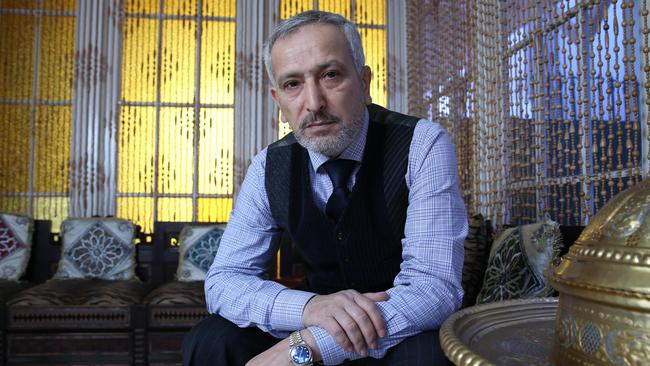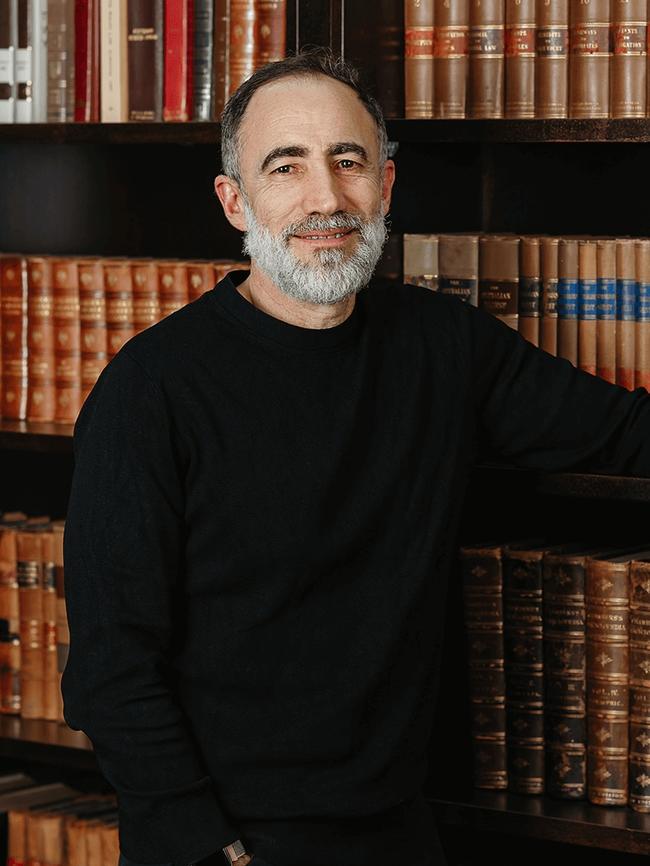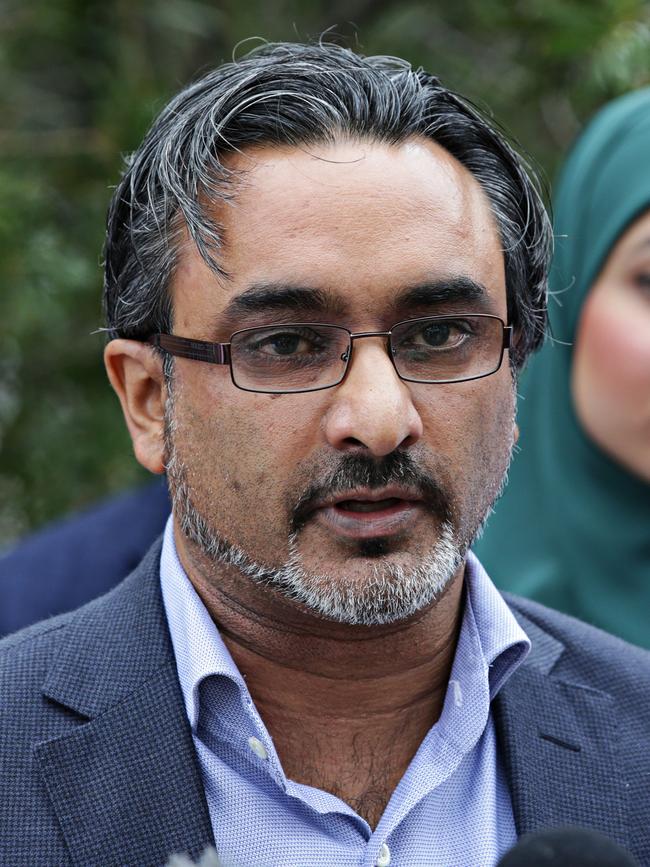Wakeley stabbing: Muslim leaders lash ‘terror language’
NSW’s Muslim leaders say that although the community would ‘always condemn terrorism and extremism’ there is growing unease at increasing ‘blanket language’, particularly surrounding Sunni Muslims.

NSW’s Muslim leaders say that although the community would “always condemn terrorism and extremism” there is growing unease at increasing “blanket language”, particularly surrounding Sunni Muslims.
The growing concern among Islamic leaders and the community comes as five teenagers were arrested and charged for an array of terror and extremism offences on Thursday.
Lebanese Muslim Association secretary Gamel Kheir said the community would never defend terrorism, but criticised what he called “blanket language” by ASIO.
“It’s not about the accused … we condemn terrorism and will continue to do so,” he said.
“We’ve done our part to expose (extremism). Our point is the tone and language being used by some law enforcement.”
Mr Kheir, himself a Sunni Muslim, said warnings by ASIO director-general Mike Burgess that Sunni Islamic extremism remained the principal concern “played into the hands of the people we’re trying to stop”.
“When you have (ASIO) saying Sunni Islam poses the greatest threat, you brandish a whole community as a threat,” Mr Kheir said.
“If that isn’t social division, I don’t know what is.”
Mr Kheir made clear the community was not saying “how dare you arrest them (the teenagers)”, and if people were guilty the “book should be thrown at them”.
“But the language used reinforces to those kids that they’re not accepted,” he said.
Mr Kheir said the LMA, which represents the largest Lebanese community in Australia, “were not told” about Wednesday’s raids.


“I’m not delusional, I don’t expect (police) to give us sensitive intelligence,” he said, saying leaders wanted to be informed to “help ease community angst”.
The Australian Federal Police in particular has long worked closely with faith leaders and the communities they represent. Its community liaison officers engage with diverse communities, and recently worked with leaders on combating radicalisation and foreign interference.
All five teens faced Parramatta Local Court on Thursday. Three on terrorism offences were remanded without applying for bail, one 17-year-old charged over possessing extremist material was denied bail, and the youngest, 14, on extremist material charges, was released pending appeal.
The court heard the 14-year-old allegedly had beheading videos stored on an electronic device while the 17-year-old on the same charge allegedly possessed videos referencing ISIS and how to make explosive devices.
Jamal Rifi, who played a key role with law enforcement agencies during the rise of Islamic State, said the Muslim community should “be viewed as partners in keeping Australia safe”.
“We have already and repeatedly warned about online radicalisation,” he said. “We always strive to be the eyes and ears of our security agencies, but we believe we’ve been kept in the dark and that is not beneficial to anyone.”
Dr Rifi said “safety was paramount” but added the community were unhappy with the “suddenness” of Wednesday’s arrests and contemplating retreating from closer engagement with authorities. “We are ordinary citizens doing our civic duties in very difficult times, many are starting to express that it is becoming too hard (to work together),” he said.
Australian National Imams Council legal adviser Bilal Rauf said the approach risked “further alienating” the Muslim community. “The safety of all of us is paramount,” he said. “However, the sudden nature of the arrests came as a shock given that community organisations were not told of any issues nor were asked for any information.”
Mr Rauf criticised a “heavy-handed approach” towards the arrested teens, particularly without the involvement of “elders, community organisations or social workers”. “(It) risks entrenching and promoting violence among disillusioned youth, alienating communities and creating distress,” he said, adding the approach risked conflating religion as ideology.
Mr Rauf said there was a “high level of cynicism” in the manner in which police conducted the raids and that leaders found out about it first through the media.






